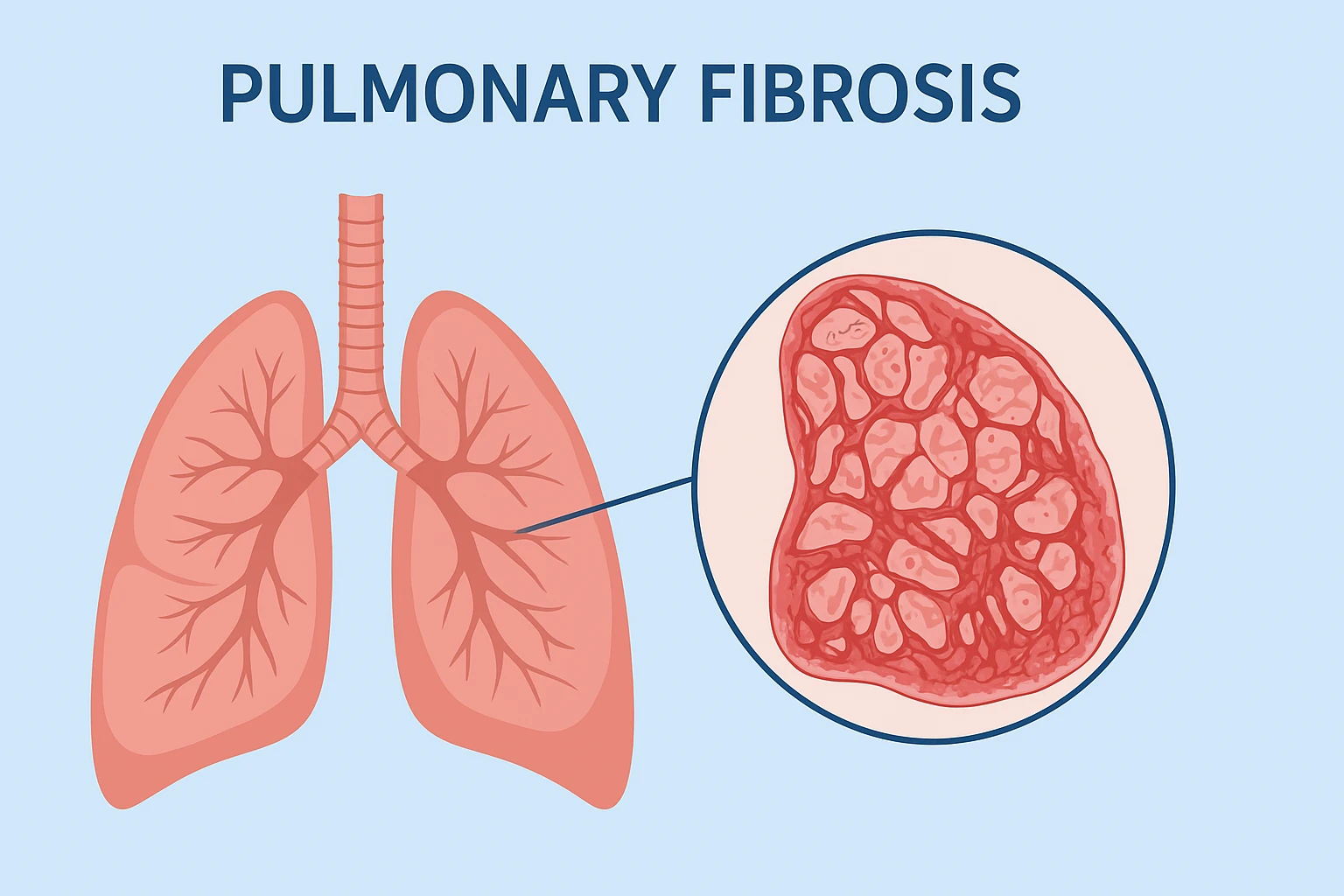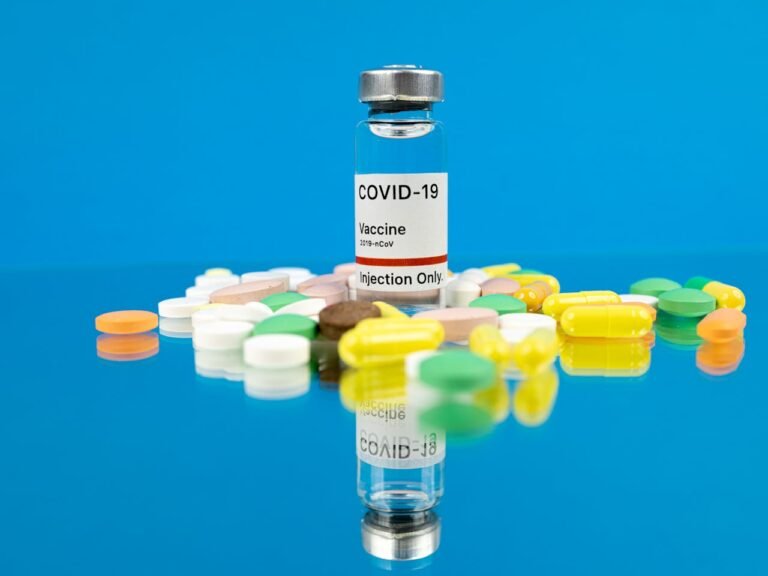Tvardi Therapeutics, Inc., a clinical-stage biopharmaceutical company developing novel oral small molecule therapies that target STAT3 for the treatment of fibrosis-driven diseases, announced an update on preliminary results from its Phase 2 REVERT clinical trial of TTI-101 in patients with idiopathic pulmonary fibrosis (IPF).
The REVERT trial was designed to evaluate the safety, pharmacokinetics, and exploratory efficacy of TTI-101, administered either alone or in combination with nintedanib (OFEV®), in patients with IPF—a chronic, progressive lung disease characterized by scarring that leads to irreversible loss of lung function. Despite meeting key study objectives for safety evaluation, the preliminary results did not meet the trial’s efficacy goals.
Study Design and Overview
The REVERT IPF Phase 2 trial was a randomized, double-blind, placebo-controlled study evaluating TTI-101 at two dosage levels—400 mg per day and 800 mg per day—compared with placebo. The trial enrolled 88 patients, who were stratified by nintedanib use to assess TTI-101’s performance both as a standalone therapy and in combination with existing standard-of-care treatment.
Patients were randomized into three groups: 30 received TTI-101 (400 mg/day), 29 received TTI-101 (800 mg/day), and 29 received placebo. Notably, 58% of participants were also receiving nintedanib concurrently. According to the preliminary dataset, baseline characteristics were generally balanced across treatment arms, although the placebo group had a slightly lower mean baseline Forced Vital Capacity (FVC)—70.1% of predicted—compared to 74.1% and 81.1% in the 400 mg and 800 mg treatment groups, respectively.
Safety Findings
The safety profile of TTI-101 was consistent with expectations for an investigational oral therapy in this patient population. However, discontinuation rates varied significantly between groups. The placebo group had a discontinuation rate of 10.3%, whereas the 400 mg and 800 mg treatment arms showed rates of 56.7% and 62.1%, respectively.
The majority of discontinuations were attributed to gastrointestinal (GI) adverse events, particularly among patients receiving TTI-101 in combination with nintedanib. While most GI-related events were non-serious, they impacted treatment adherence, contributing to higher dropout rates among TTI-101–treated participants.
Tvardi noted that the imbalance in discontinuation rates limited the interpretability of efficacy outcomes and contributed to smaller evaluable sample sizes at later study timepoints.
Efficacy and Lung Function Results
The trial’s exploratory endpoints were designed to assess potential trends in lung function preservation, primarily through changes in Forced Vital Capacity (FVC), a key indicator of disease progression in IPF. However, the study was not powered for statistical comparison of efficacy outcomes.
Among patients evaluable for efficacy (those with at least one baseline and one on-treatment FVC measurement), the groups were distributed as follows:
- Placebo: 29 patients
- TTI-101 400 mg: 23 patients
- TTI-101 800 mg: 27 patients
At the 12-week mark, evaluable patients decreased to 24 in the placebo group, 8 in the 400 mg group, and 13 in the 800 mg group, largely due to discontinuations.
Preliminary analysis of FVC changes revealed no statistically significant differences between placebo and TTI-101 treatment arms. The proportion of patients who experienced an improvement in FVC from baseline was 41% for placebo, 39% for the 400 mg arm, and 44% for the 800 mg arm.
The mean change in FVC at 12 weeks was as follows:
| Treatment Group | n | Mean FVC Change (mL) | Standard Deviation (SD) |
|---|---|---|---|
| Placebo | 24 | -22.2 | (126.0) |
| TTI-101 (400 mg) | 8 | -61.1 | (190.7) |
| TTI-101 (800 mg) | 13 | -102.8 | (238.3) |
Notably, the placebo group demonstrated a smaller decline in FVC than typically observed in historical IPF studies, complicating the interpretation of efficacy outcomes. Additionally, the large variability in lung function measures within each treatment arm further limited the ability to draw firm conclusions about TTI-101’s potential benefit.
Company Commentary and Next Steps
Dr. Imran Alibhai, Chief Executive Officer of Tvardi Therapeutics, addressed the findings, acknowledging the challenges in interpreting the preliminary data due to variability and limited sample size.
“In the aggregate, we did not observe a clear benefit of TTI-101 treatment in this IPF study,” said Dr. Alibhai. “The limited dataset, high variability within treatment arms, and the unexpectedly strong performance of the placebo arm make it difficult to draw definitive conclusions. We are conducting further analyses to understand the results more deeply and determine our next steps.”
He extended gratitude to the patients, investigators, and clinical teams involved in the REVERT trial:
“I want to sincerely thank the patients, their families, investigators, and site staff for their commitment to this study.”
Despite the mixed IPF results, Tvardi remains focused on advancing its STAT3 inhibitor pipeline, which includes both TTI-101 and its next-generation compound, TTI-109.
Pipeline Progress and Outlook
Tvardi plans to report preliminary topline data from its ongoing healthy volunteer study of TTI-109 in the first half of 2026. TTI-109, the company’s next-generation STAT3 inhibitor, is designed to improve upon TTI-101 by enhancing target engagement, drug delivery, and tolerability.
In addition, the company expects to release Phase 2 data for TTI-101 in hepatocellular carcinoma (HCC) during the same timeframe. These programs represent Tvardi’s continued commitment to addressing STAT3-driven diseases, which span fibrosis, inflammation, and cancer.
Dr. Alibhai added:
“TTI-109 is designed to enhance TTI-101’s pharmacological profile with the potential for improved tolerability and efficacy. Once the TTI-109 healthy volunteer study is completed, we will evaluate opportunities to expand into additional STAT3-driven indications.”
Financial Position
As of June 30, 2025, Tvardi reported $41.0 million in cash, cash equivalents, and short-term investments. The company expects this funding to support operations into the fourth quarter of 2026, providing ample runway to complete ongoing studies and plan future development milestones.
Conclusion
While the Phase 2 REVERT trial of TTI-101 in IPF did not meet its exploratory efficacy goals, Tvardi continues to advance its innovative STAT3-targeting platform with confidence. The company’s ongoing work on TTI-109 and its oncology programs underscores its mission to develop first-in-class, orally available therapies for diseases driven by aberrant STAT3 signaling.
Tvardi’s commitment to scientific rigor, patient-centered research, and pipeline innovation positions it to continue contributing to the evolving landscape of fibrosis and cancer therapeutics.



